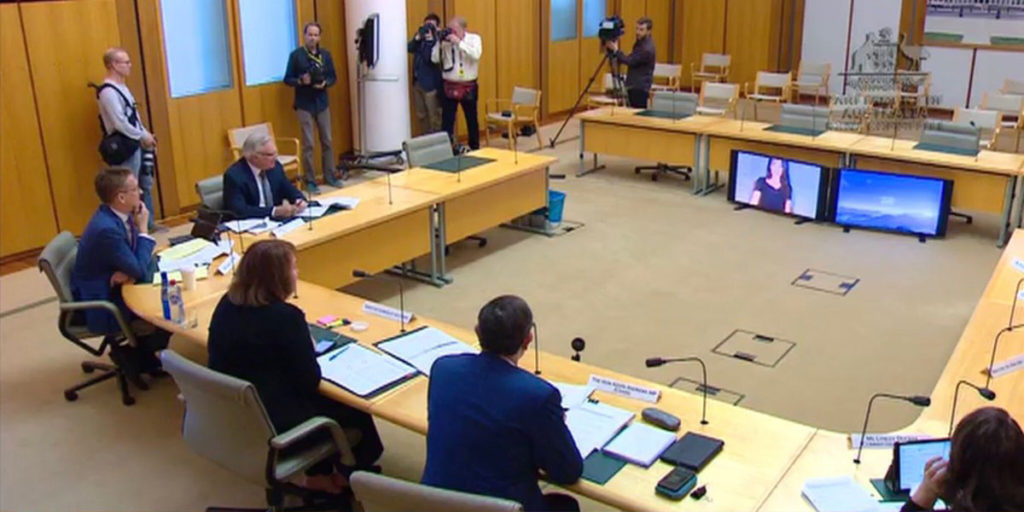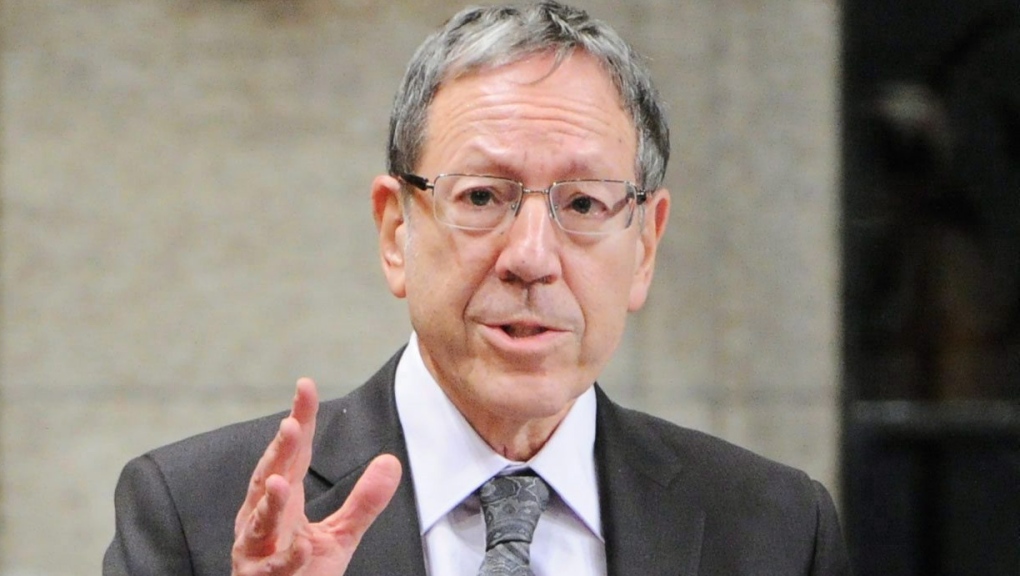Australia/Israel Review
Parliament puts spotlight on rights abusers
May 28, 2020 | Naomi Levin

The Australian Parliament’s inquiry into whether Australia needs to strengthen its laws against human rights abusers received a significant glamour boost on May 15, when Amal Clooney, highly respected international human rights lawyer, but also the wife of Hollywood star George, gave evidence via video link.
The inquiry she fronted is currently considering whether Australia needs to introduce new laws, or amend existing laws, to better sanction individuals who are committing genocide, extra-judicial killings, or torture.
Clooney was followed by former Canadian attorney-general Professor Irwin Cotler, then Bill Browder, the founder of a global movement that has advocated tougher sanctions against human rights abusers.

Bill Browder with a portrait of the late Serge Magnitsky, the inspiration behind laws to punish human rights abusers
With Browder’s impetus, the United States, Canada, the United Kingdom and some European countries have introduced what are called “Magnitsky-style laws,” named after a 2009 case involving the mysterious death of Russian lawyer and tax fraud whistle-blower Sergei Magnitsky. These laws allow governments to impose hefty sanctions, such as travel bans or asset freezes, on human rights abusers, regardless of where their offence was committed.
The Global Magnitsky Act was introduced in the United States in 2017. Since then it has been used to sanction human rights abusers and corrupt officials from Nicaragua to Iran.
There has been active support from some Australian MPs for Australia to adopt similar measures, most notably Labor’s Michael Danby, who introduced a private member’s bill before his retirement in 2019. Danby’s bill did not progress through the Parliament, but did raise the profile of the issue.
The spotlight has not dimmed thanks to the ongoing work of Danby’s Labor colleague Senator Kimberley Kitching, with strong support from Liberal Senator James Paterson. And in December last year, Foreign Minister Marise Payne tasked the Joint Standing Committee on Foreign Affairs, Defence and Trade’s Human Rights Sub-Committee with holding an inquiry into such a legislative regime.
So is Australia likely to follow the US, UK, Canada and others and introduce additional sanctions on human rights abusers?
The answer is not yet known, but there are indications Australia is considering a shift.
Prior to the establishment of the current inquiry, the Australian Government argued that Australia’s existing autonomous sanctions regime covered the same ground as suggested Magnitsky-style laws.
The Department of Foreign Affairs and Trade (DFAT) chief legal officer – and former Australian ambassador to Israel – James Larsen said in 2018, “If you look at how our autonomous sanctions regime operates, individuals can be identified who are subject to sanctions.”
To an extent, he is correct. Australia currently places sanctions on human rights abusers in Syria, Zimbabwe and Myanmar under its existing laws.
However, in its recent submission to the current inquiry, DFAT changed its tune slightly. It noted a preference for amendments to Australia’s Autonomous Sanctions Regulations 2011, to better capture human rights abusers, instead of an entirely new human rights-based sanctions regime.

Magnitsky-law advocate Prof. Irwin Cotler
While Clooney’s testimony grabbed media headlines, it was Prof. Cotler who advocated the Australian Government should adopt Magnitsky-style laws to, among other things, help sanction Iran’s gravest human rights violators.
Prof. Cotler told the committee that the United Nations has largely failed to deal with gross human rights abusers and that countries like Australia needed to step in. He cited Saudi Arabia’s nomination for a seat on the UN Human Rights Council as one of the most obvious examples of this.
“You have a situation where the arsonists are supposed to put out the fire,” he told the committee.
We are living in a “world where we have an erosion of a rules-based multilateral order, we have a resurgence of global authoritarianism, we have a retreat of global democracies.”
The introduction of Magnitsky-style laws in places like Canada also shows the victims of human rights abuses in Iran – as well as other places – “that they are not alone” and that “we will undertake our international responsibility in the pursuit of justice, in securing accountability and in combatting the cultures of criminality and corruption and the impunity that underpins them,” he said.
Prof. Cotler told the committee his organisation, the Raoul Wallenberg Centre for Human Rights, has advised Canada to use its own Magnitsky-style laws to sanction Iranian human rights violators, but Justin Trudeau’s Government has yet to do so. Canada recently felt the weight of the Iranian regime’s aggression particularly bluntly, losing nearly 60 Canadians when Iranian forces shot down a Ukrainian passenger jet in January.
Cotler said it was particularly egregious to Canadians that the man placed in charge of the inquiry into the shot-down plane is himself a grave human rights violator allegedly involved in the deaths of thousands of Iranian dissidents in 1988.
Joining Prof. Cotler in supporting the introduction of these types of law in Australia was a group called Australian Supporters of Democracy in Iran. They were among the 120 public submissions to the Parliamentary Committee, along with input from the Uyghur Association of Victoria, a representative body for the ethnic-Muslim group currently so deeply repressed in the Xinjiang region of China, groups supporting Hong Kong democracy, and large international NGOs like Human Rights Watch.
While he is no longer in Parliament, Danby’s words from a 2018 speech, imploring the Australian Government to introduce Magnitsky-style laws, still hold power in explaining what such laws can accomplish:
“The more countries that adopt such laws, the more jurisdictions can potentially be made out of bounds to individuals involved in the shooting down of planes over Ukraine; murdering journalists inside embassies; interning and abusing millions of Uyghurs in concentration camps; expelling or killing Rohingyas; starving, incarcerating, torturing and executing 300,000 citizens in concentration camps in North Korea; or ethnic cleansing of people in places like Darfur, Rwanda and Srebrenica – and so on and so on.”
The process has a long way to run, with the committee still to report and the Foreign Minister to consider the report before any possible amendment or legislation is introduced. In the meantime, Australian parliamentarians have shown they are serious about efforts to impose real consequences for global human rights abusers.
Tags: Australia, human rights, Iran, United Nations






